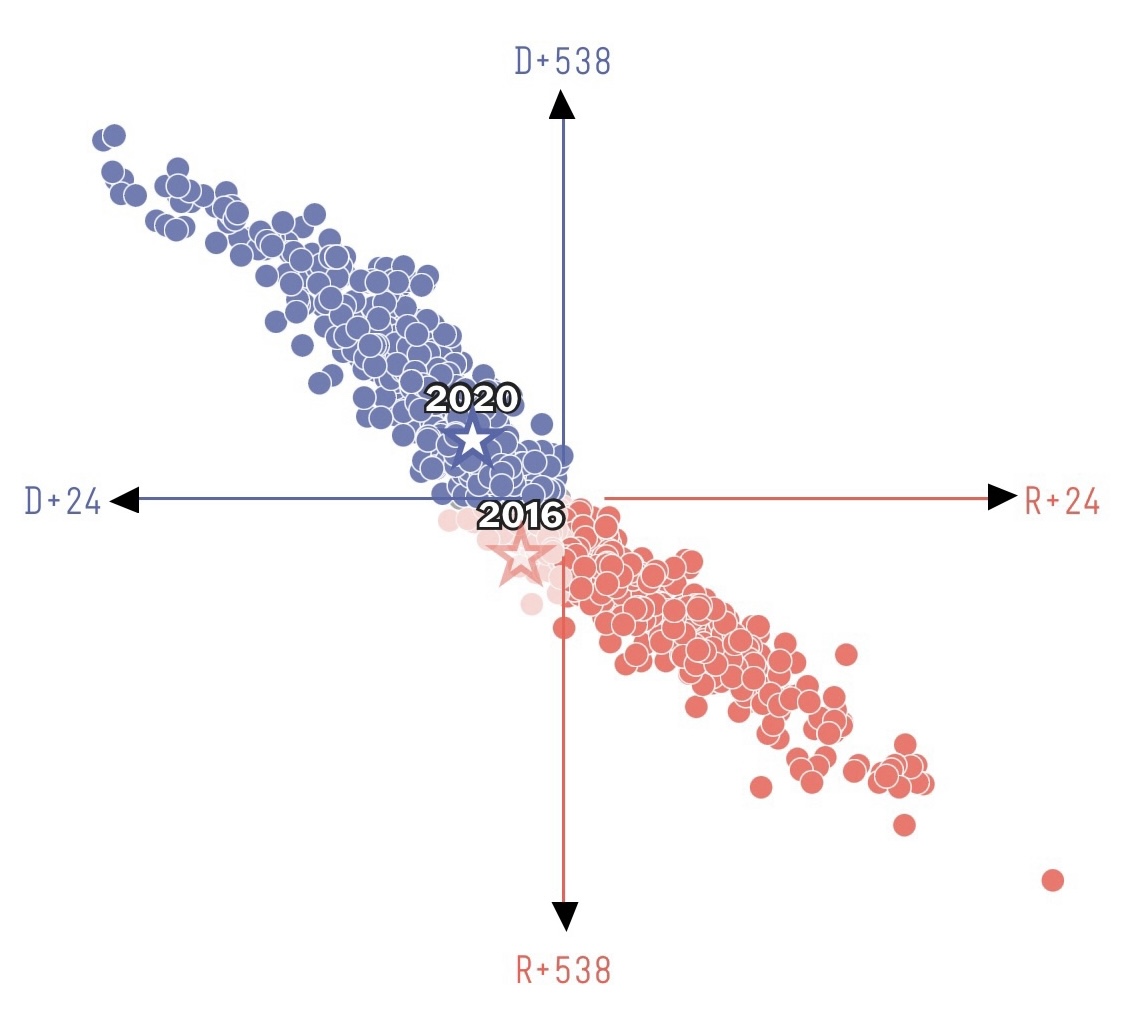🏅 Top traders
| # | Trader | Total profit |
|---|---|---|
| 1 | Ṁ14,917 | |
| 2 | Ṁ4,285 | |
| 3 | Ṁ4,173 | |
| 4 | Ṁ3,266 | |
| 5 | Ṁ2,540 |
@JoshYou it's joever. California swung towards Trump by 12(?) points vs 2020 and Trump is winning Latino men by 10%.
It should be known that, although it happened in 2000 and 2016, the window of winning the electoral vote and losing the popular vote is pretty narrow. Much narrower than you might assume.
Granted, if Trump wins the election very narrowly, let’s say below 300 electoral votes, it would be likely that he would not win the popular vote. Above 300, it is likely that he will win the popular vote.
Most election models have Trump and Harris about equally likely to win. However, the chance that the election result is very close is actually not very likely. Given that Trump wins 270+ electoral votes, the most typical result would be about a 325 EV win.
For this reason, FiveThirtyEight said there’s only a ~1-in-8 chance Trump wins the election but not the popular vote. That leaves a ~3-in-8 chance that Trump wins both the election and the popular vote.

@cece not based on any news, this market just seems way too low to me. I'd probably predict 65-70% for this.
@SemioticRivalry interesting. Curious, why you think it should be 65-70%? Trump didn't even beat Clinton in the popular vote.
@DanielBets Conditional on Trump winning, he's much more likely to win the popular vote than he is conditional on losing. If the presidential race is a tossup, then P(Trump wins pop vote | Trump wins) is about twice as high as the unconditional probability, since Trump is very unlikely to win the popular vote if he loses. And current polls suggest that P(Trump wins pop vote) is not nearly as low as this market initially thought.
@DanielBets Say the odds of the popular vote are 70/30 for Biden. Say the odds for the electoral college are 50/50. Say that whenever Trump wins the popular vote, he also wins the electoral college. With these assumptions, we get 30/50= 60% chance.
@SemioticRivalry makes sense. I would quibble with your odds of popular vote. Since dems have won the last 4 popular votes by >2 million votes each time I'd put it at least at 80%. But maybe that's recency bias :)
The swing from Clinton to Biden 2020 was +4 million votes so I'd be shocked if it swung back by >7 million votes so that Trump would actually win the popular vote. But we'll see!
https://manifold.markets/NcyRocks/if-trump-is-elected-president-in-20-76bc6d834051?r=TmN5Um9ja3M
Re: inflation for example, I think a lot of people assumed that since it hadn't happened in a very long time, it was less likely to happen soon
Who thought this? I guess people thought inflation was unlikely to happen super soon before the pandemic, but that was because they weren't expecting such a massive, unpredictable event to come and demolish the economy for a while. And I don't think that expectation was unreasonable. Having a low credence in something like a global pandemic was rational, and just because it happened to be wrong in that particular case doesn't prove that it was bad thinking.
If there was a good reason for an informed person to expect the stock price tomorrow was going to be higher, the market (aka aggregate of all people with opinions about the stock price) would drive it higher today.
But elections are nothing like this. People aren't trying to predict how well the GOP will do in the future when they choose who to vote for today. Elections are still somewhat unpredictable, but I don't see any analogy between them and the stock market. And I definitely that past performance is a predictor of future election results, in the short term at least. A significant change in the electoral results either requires a significant portion of people to change their mind, a significant change in the composition of the electorate, or a significant change in what the parties stand for, and none of those things happen overnight.
Why are you only counting elections that happened since you were born and not counting elections where the incumbent was republican? That seems completely arbitrary to me.